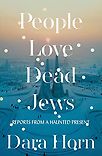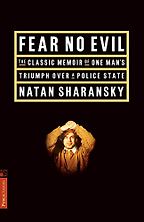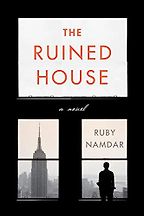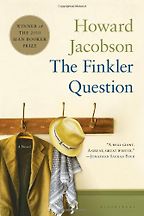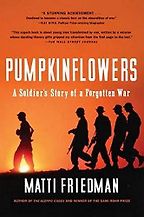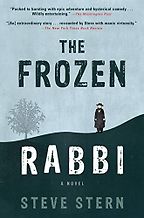Chanukah is not the holiest of holidays. It’s often written off as a children’s festival, amped up to emulate Christmas. Before we talk about Hanukkah books, please brief us on the holiday itself.
Biblical holidays, like Rosh Hashanah, Yom Kippur, and Sukkot, are considered holier than Hanukkah. Hanukkah is not a major holiday in the Jewish calendar, but it does have a lot of significance and there is a lot to take from it.
If I was going to parallel Hanukkah to an American holiday, it would be the 4th of July. Hanukkah celebrates freedom won from the Hellenistic Seleucid Empire—which had taken over Judea—in 164 BCE. The soldiers came from Syria, but the religion and culture they brought were Hellenistic. They restricted the practice of Judaism, forbidding circumcision, Torah study, and observing the Jewish Sabbath. A native group of Jews, called the Maccabees, led a revolt. Against all odds, the Maccabees succeeded. So, both the Fourth of July and Hanukkah are about underdogs winning their independence from powerful empires.
Hanukkah means ‘a dedication.’ The Hellenistic empire turned an ancient temple in Jerusalem, which was central to Judaism, into a temple for Zeus. When the Maccabees won, the Jews rededicated the temple. So, that’s the religious aspect of Hanukkah. This ancient temple was illuminated by an oil-lit candelabra. As the story goes, only one jug of oil remained, and it lasted for eight days. That legend developed many years after the fact. The real miracle was the fact that the Maccabees prevailed, which led to the recommencement of Jewish worship in Jerusalem’s ancient temple, with prayers centered around the candelabra.
The story seems to fit a twenty-first-century theme. Is Hanukkah an anti-colonial holiday?
Absolutely. Yes.
You poignantly describe how the celebration of Hanukkah prepared your children for anti-Semitic violence in your book, provocatively titled People Love Dead Jews.
What’s inside the book is even more disturbing than the title. This book is about the role that dead Jews play in non-Jewish societies and how that affects living Jews.
When there was a massacre at the Tree of Life synagogue in Pittsburgh, my children were not shocked, which surprised me. When I asked them why, they said the fact that ‘some people hate Jews’ was familiar to them from the Hanukkah story and the Passover story. While I grew up without anti-Semitism impacting my life, anti-Semitism is in the air now and it’s impossible to miss. When my daughter’s synagogue choir performed at a church down the street, she was stunned that we could just walk into the building. She asked, ‘how come there’s no one checking?’ Because our synagogue, like most synagogues in the world, has an armed guard at the door.
In 2018, the menorah in the Cambridge Common, close by my home, was knocked down by a man on the fifth night of Hanukkah. In 2019, on the seventh night of Hanukkah, a masked man invaded a Hanukkah celebration in New York, stabbing five guests and killing one. Last year, 2020, on the eighth night of Hanukkah, a man was run over during a menorah lighting in Kentucky. You describe how Jewish holidays are often as marked by vigilance as religious observation, beginning with the first Passover. Please explain.
In the Hebrew Bible, the first Passover is described as a vigil. Passover celebrates the exodus from Egypt, but the first night commemorates the eve of the exodus when God sent the angel of death to slay the firstborns of Egyptians but spared the sons of the Hebrews who were keeping vigil. There’s this element of fear in our holidays and they also remind us to stay calm during trying times.
Get the weekly Five Books newsletter
As you say, throughout history anti-Semitic attacks sometimes come when Jews are gathered to celebrate or worship. Attacks on the Hanukkah menorah and people being attacked when lighting Hanukkah menorahs is particularly poignant because part of the Hanukkah tradition is to light a menorah in public. Rabbinic literature says unless you’re in a time of persecution, light the menorah where it can be seen to spread light in the darkness.
There is a larger message for the broader public in this holiday—the value of freedom and freedom of conscience. The survival of Judaism and the commemoration of Hanukkah demonstrate that it is not necessary to believe what all your neighbours believe, and that diversity of opinion can survive in pluralistic societies.
What criteria did you use in making your five book choices?
Asking for five books about Hanukkah is almost like asking for five books about leap year. Christmas has a vast literature; Hanukkah, not so much. So instead of naming books that were explicitly about Hanukkah, I looked for books that I admired which reflected the themes of the holiday. These are five books that I really love.
The first is by Soviet dissident Natan Sharansky.
Fear No Evil is an autobiography of Natan Sharansky, a Russian Jewish dissident who was imprisoned. The Soviet Union basically repressed all expressions of Judaism and forbade Jews from leaving for Israel. As a student in Moscow, exposure to Judaism led Natan to feel that lacking freedom of conscience is like a living death. He becomes a human rights activist and applies for a visa to emigrate to Israel. He is thrown in a gulag, tortured and held in solitary confinement for years. The campaign for his release, which his wife undertook, led to a worldwide campaign for the freedom of all Soviet Jews.
How does Fear No Evil fit in your Hanukkah list?
Sharansky’s story is, in essence, about resistance to a coercive empire that punished people who didn’t conform. It echoes the story of the Maccabees. He describes being stripped of his menorah in the gulag and how he tricks a warden to light the candelabra with him. As he writes in his book, he was inspired by the Hanukkah story.
Next, an award-winning book which the New York Times review called a masterpiece. Tell me about The Ruined House.
This is a beautiful book, originally written in Hebrew by Ruby Namdar, an Israeli author based in the United States. It’s about a New York University professor of comparative culture called Andrew Cohen during the year leading up to 9/11. The professor starts having weird visions which interfere with his romantic relationships and his relationships with his children. He thinks that he’s going insane. As the reader, we question his sanity too. Interspersed with his story are sections of texts written in the style of the Talmud, an ancient Jewish text. At first, these sections seem like random bits of religious gobbledygook. But if you read carefully, a second story emerges about a young priest at the centre of Judaism in ancient times. This second story parallels the professor’s story.
The undertow of ancient times is pulling this 21st-century character back. The story is making the argument that the past never goes away. Even as we try to divorce ourselves from the past, our ancestors and aspects of our past keep a claim on us. The Ruined House is a warning that we ignore those claims at our peril. It’s an amazingly creative and beautifully written book.
Please make its connection to Hanukkah explicit for us.
The Ruined House takes you back to the ancient temple that Hanukkah celebrates reclaiming. And it powerfully makes the point that we’re all connected to the history that haunts us.
In 2010 this next book won the Booker Prize. Tell me about Howard Jacobson’s The Finkler Question and why you’ve chosen it.
This is a very funny book about middle-aged men fighting with each other and fighting to maintain their self-esteem in pathetic ways. It’s very accessible. Sam Finkler, a popular thinker, media personality, and bestselling author, and his friend Julian Treslove reconvene with their former professor, an older Jewish immigrant from the Czech Republic. The book is about how Jews are expected to cooperate with contemporary anti-Semitism. To be accepted, Finkler renounces and demonizes the state of Israel. This book came out in 2010; only in more recent years has the UK started to grapple with the open anti-Semitism in its society.
Why is The Finkler Question the right gift for Hanukkah?
Hanukkah celebrates the end of the Seleucid Empire’s tyranny over Ancient Judea. At first, that regime just insisted that the Jews eliminate certain practices and conform to others. Many Jews went along. In my book I talk about the importance of Greek games at the time of the Hanukkah story; athletics in the nude were part of a public religion. Teenage Jewish boys were urged to participate. Many had their circumcisions reversed to conform. They mutilated themselves to ingratiate themselves.
What Howard Jacobson does brilliantly in this book is look at how Jews are asked to participate in contemporary forms of anti-Semitism. That was why I included it on this list. It’s an amazing book about human dignity.
Next is a book by Matti Friedman that the New York Times called an “Israeli analog” of Tim O’Brien’s The Things They Carried. Why Pumpkinflowers?
I should say, Matti Friedman and I are friends. Pumpkinflowers is about his experience serving in the Israeli army at an outpost in a buffer zone on the Southern Lebanon border during the late 1990s. His unit was there to defend northern communities from Hezbollah fighters who were shooting missiles into Israel. It’s an astonishing memoir.
Hanukkah is, in a way, a military holiday. So I wanted to include Pumpkinflowers because it’s about what goes on in the mind of a Jewish soldier at war. It’s a contemporary perspective on what it’s like for an Israeli soldier to face an openly jihadi enemy on his border, where moments of boredom alternate with moments of total terror. And Matti Friedman is a wonderful writer.
Finally, The Frozen Rabbi by Steve Stern.
Hanukkah is a holiday celebrating a miracle. The miracle of the oil is a fantastical story that the rabbinical tradition felt the need to tack onto this commemoration of a miraculous military victory. So, I wanted to include something that had a miraculous quality to it; The Frozen Rabbi certainly does.
It’s a hilarious novel based on a fantastic premise. A Jewish teen in Tennessee, looking for hamburgers, discovers a 19th-century rabbi in his family’s deep freezer. Then there’s a power failure. The rabbi defrosts and it’s just hilarious. It becomes a story about the history of Jews in diaspora and about how the past haunts us. The Frozen Rabbi really captures that miraculous element of Hanukkah and the way all Jewish holidays tie modern people to an ancient past.
Five Books interviews are expensive to produce. If you're enjoying this interview, please support us by donating a small amount.
We all have an equivalent of the rabbi in the freezer. We keep family heirlooms and religious traditions for old times’ sake, without considering how we engage with them. In the United States, the belief that the past is past is prevalent. But in Judaism, the idea that the past is always present and waiting to reemerge prevails.
Which of your own works of fiction would make the best Hanukkah present?
Probably my most recent novel, Eternal Life, which was inspired by some of the five books we just discussed. It’s about a woman born in Jerusalem 2000 years ago who makes a spiritual bargain to save her son but ends up trapped in eternal life because her vow was taken in the ancient temple destroyed by the Romans in 70 CE. Also stuck in eternal life is an ex from her youth who stalks her through the centuries. It has a comic element to it, but it’s about how we’re all haunted by our pasts, which is also the subtitle of my current book, People Love Dead Jews: Reports from a Haunted Present.
Five Books aims to keep its book recommendations and interviews up to date. If you are the interviewee and would like to update your choice of books (or even just what you say about them) please email us at [email protected]

